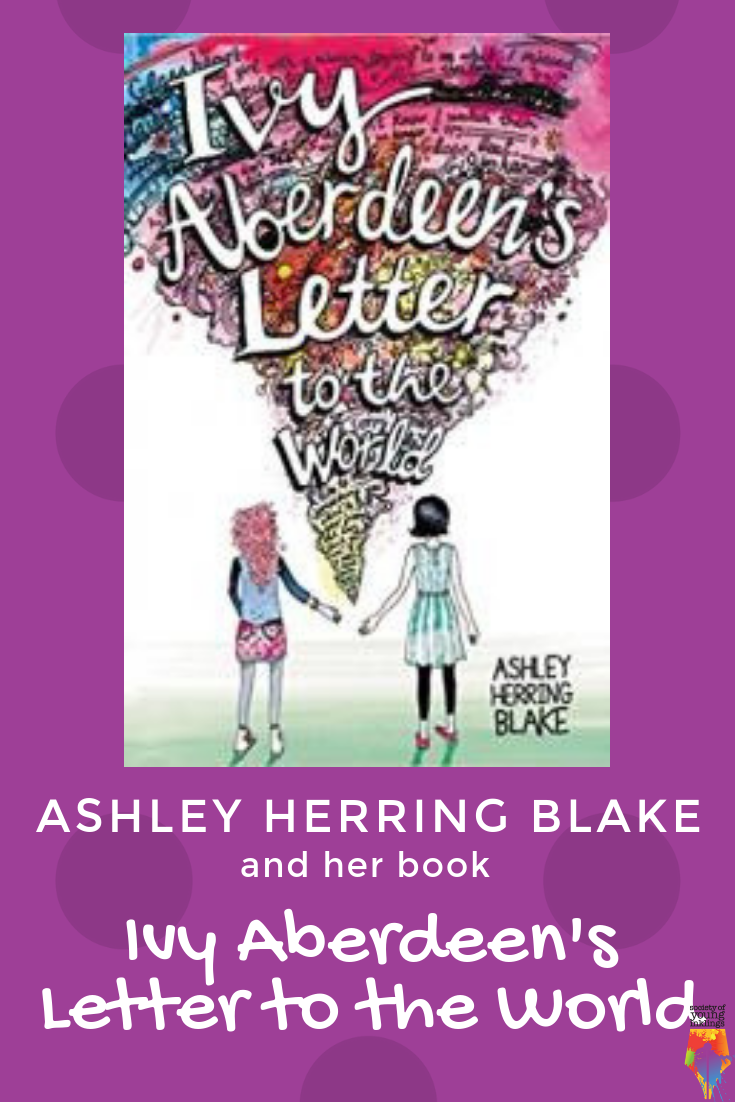Writerly Play Kit FOR EDUCATORS
Bridge Between Games and Writing
Bridge Between Games and Writing
In this Writerly Play Kit, we’ll explore tools and strategies to help educators “think aloud” to help their writers build the necessary thinking muscles to bridge between games and writing.
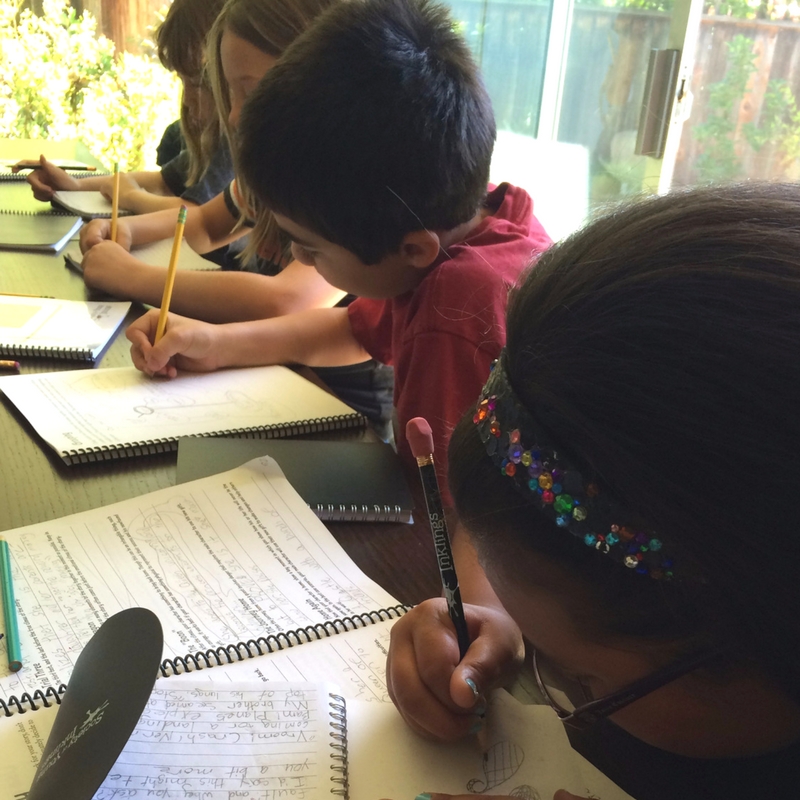
Featured RESOURCE
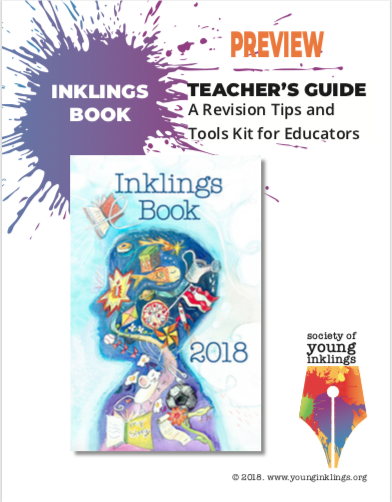
Revision is often a stressful part of the writing process for writers and educators. How can we make it a more productive, enjoyable experience all around? In our Inklings Book Teacher’s Guide, we share our philosophy on building on strengths during the revision process, and provide a few strategies our mentors have found most useful in inspiring writers to tackle the revision process with zest.
This free preview includes a sample Inklings Book story, mentor letter, young author interview, printable and lesson plan you can use to recreate this youth writer’s successful revision in your classroom.
Should you want more strategies and tools like this one, the full Inklings Book Teacher’s Guide, bundled with the Inklings Book 2018, can be purchased in our bookstore.
Featured GAME
Three tries
BRAINSTORMING
In the game of Three Tries, actors try to fix one problem three different ways. The first two tries don’t work. In fact, they might make the situation worse. The third try does work, at least to a point. Try spreading players across the room with a movement game, and then have each run through a series of Three Tries individually, but at the same time as the other players are playing their scenes.
You can start by giving the class a set problem, such as a broken vase or mashed potatoes flung across the kitchen by a rogue blender. Once their creativity is warned up, try the game again, coaching them to try a problem their characters face in a story. To brainstorm ideas for a persuasive unit, players could try solutions for a problem they might want to present. Even if the first rounds are a bit silly, ideas will start flowing and your writers’ thinking will move outside the box.
BUILDING SCENES
Often developing writers struggle with pacing. A problem presents itself in a scene, so writers choose a possible solution and give the idea to their character immediately. They don’t consider giving their characters time to work through the problem and come to the solution more naturally. Alternatively, they might create scenes that present problem after problem with no progression of stakes, and no apparent end in sight.
Three Tries provides boundaries, allowing writers to stretch their creativity as they try their three solutions to a problem, adding obstacles along the way. However, the limit of three helps them move toward resolution, as well. Play the game to practice the skill of pacing, or use it as a way to plan a scene that has three major steps. Once writers transition from the game to writing, talk through how to use what worked best in the game, while also leaving freedom to break the pattern, as needed.
― Margaret Mead
American Cultural Anthropologist
strategy
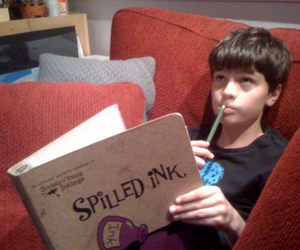
One of the most powerful ways to bridge between a game and writing is to share how you might problem-solve when hitting a wall. Prepare for your modeling conversation by thinking of what ideas might have come up for you in the game. Then, after the game is done, gather the writers in a circle. Share your idea, and how you might try to put it into a scene.
Choose a way that doesn’t quite work, ideally in a way you know that your writers might struggle. For instance, you might have had the idea that your character is terrified of the dragon, and so she runs away screaming. She runs, and the dragon chases, and … Where does the scene go from there? You realize that she may need to find a new solution as she’s running. Try asking your class for ideas: What might she do? Choose one of their ideas, and show how the scene might progress. Then, ask them to think about their own ideas. How might they take their initial ideas and move them toward a resolution?
What’s Up At SYI this Month?
CLASSROOM WRITING CHALLENGE
Awkward Moments
Awkward moments often make for excellent stories. For instance, Naomi, our founder, remembers when she read the line “c’est la vie” in front of her 7th grade acting class, only to discover the French phrase wasn’t pronounced “
For your students’ writing challenge, have them turn an awkward moment into a scene for us, and submit your response by emailing submit@younginklings.org. You might be published on our website!
In this month’s Ink Splat, we talk to author Ashley Herring Blake about her coming-of-age novel, Ivy Aberdeen’s Letter to the World. She talks to us about the way that stories and literature can give language to our experiences, questions, and fears, and also help us to empathize with the emotions and experiences of others. Here’s a sneak peek of this month’s Ink Splat:
My YA [writing] very much came to fruition because they were books I needed as a teen, but I quickly came to understand that, for my own understanding of my identity, I needed to go younger than teenagers. I needed to write about that horrible, mysterious, wonderful time that is middle school. As for the main external conflict, I’d always been fascinated with tornados, stemming from a deep fear of them as a kid. I wanted to explore how kids react and handle displacement, destruction, and how those themes can so easily mirror the turmoil going on inside of a kid who’s not sure who she is and, even worse, whether or not who she is will be accepted.
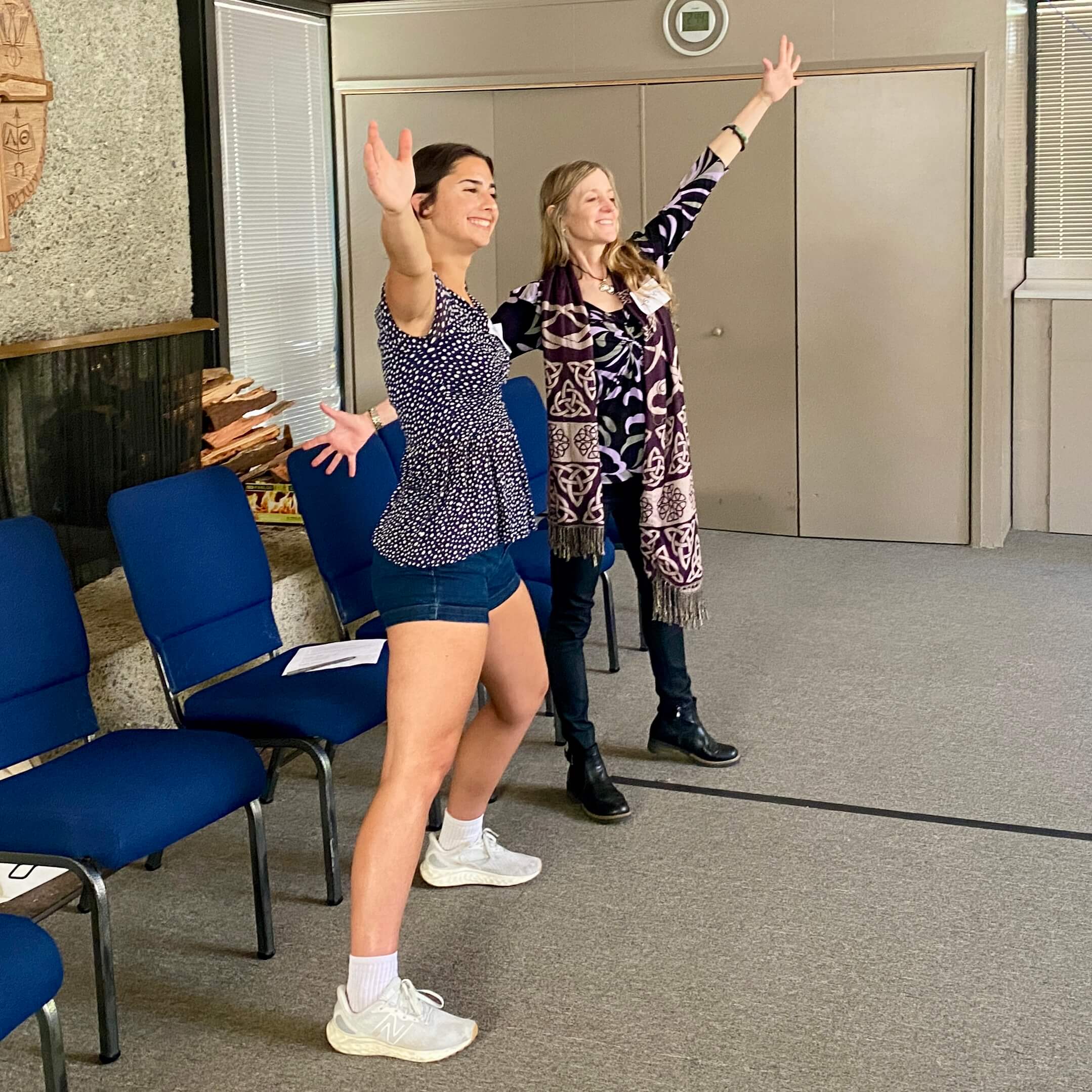
INKLINGS CONNECT
THE WAY WORDS MOVE US
Join us September 13 and 14 in Portola Valley, CA for our 2nd Annual Inklings Conference!
Featuring a keynote with author Joanna Ho, this conference includes creative writing breakout sessions in our beautiful redwood grove, workshops on using improv to step into a character’s shoes, experiments in word play, a storytelling workshop, and reflective writing to tap into your unique voice.


